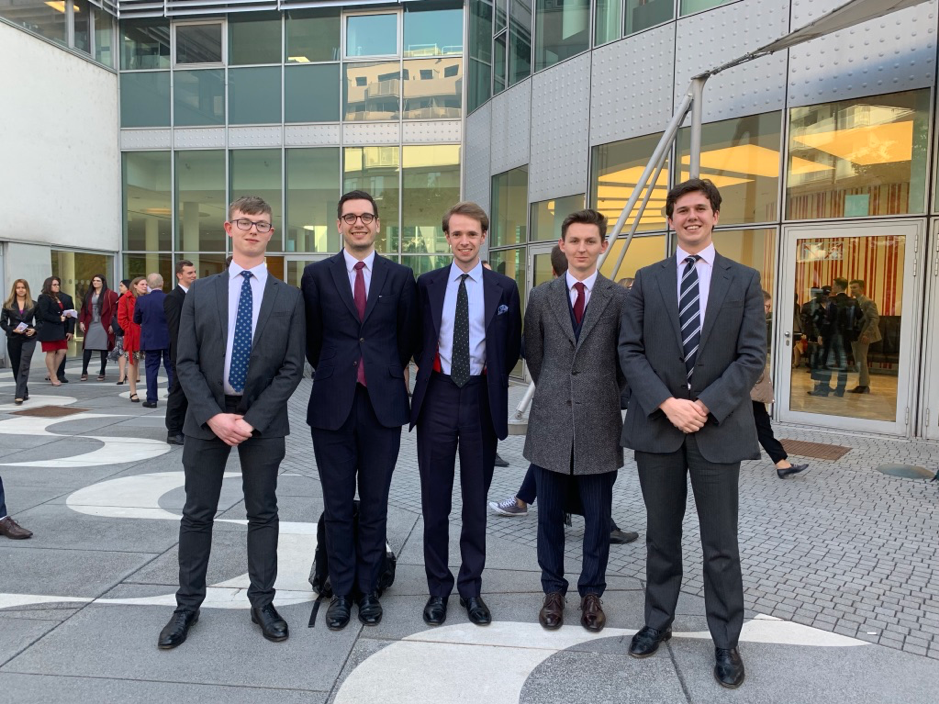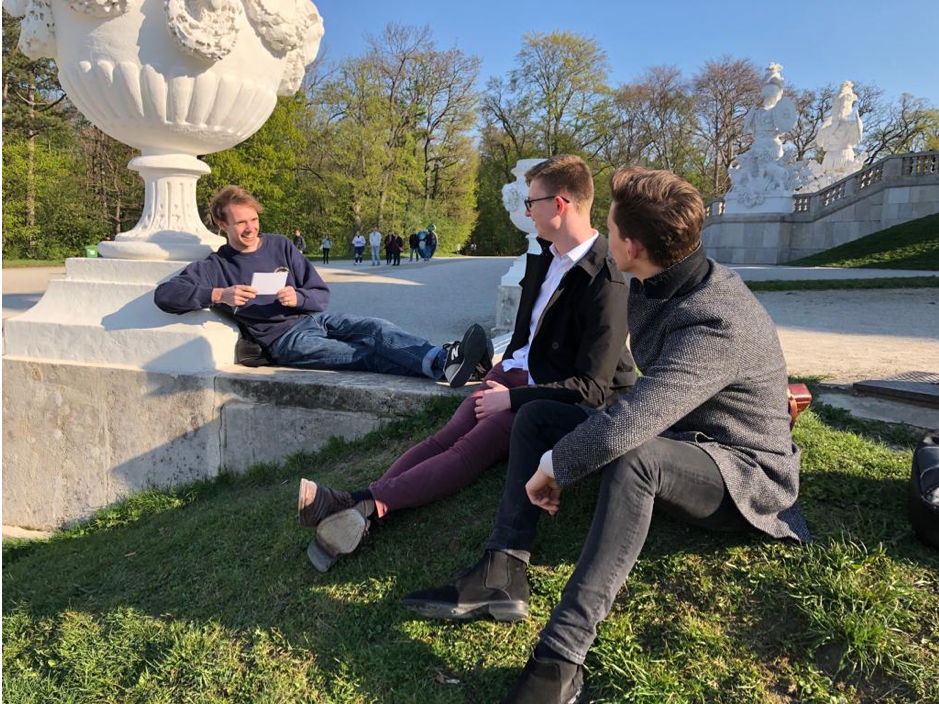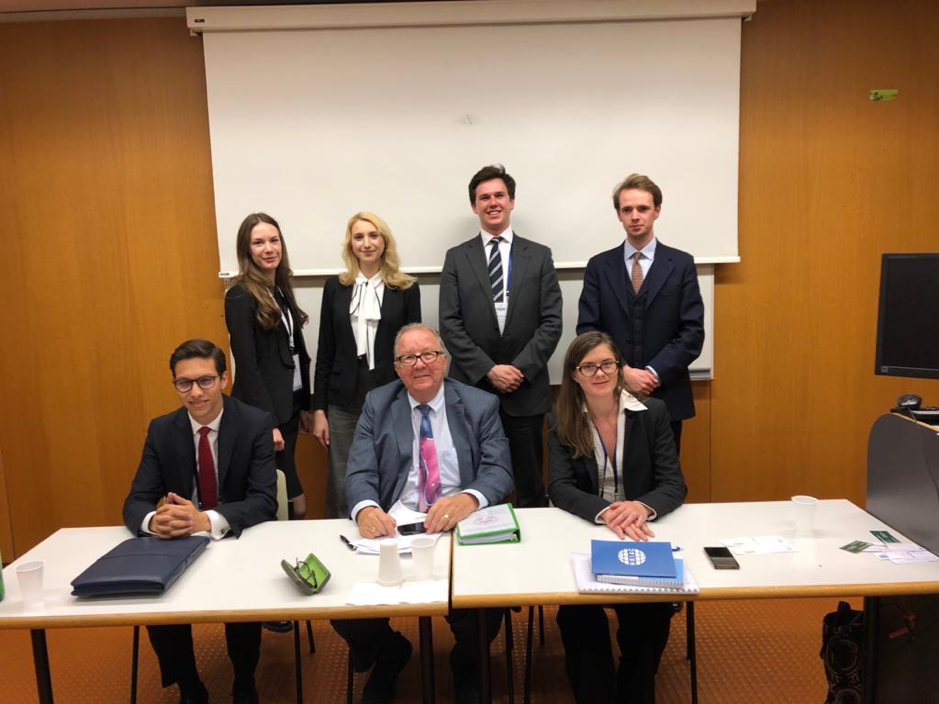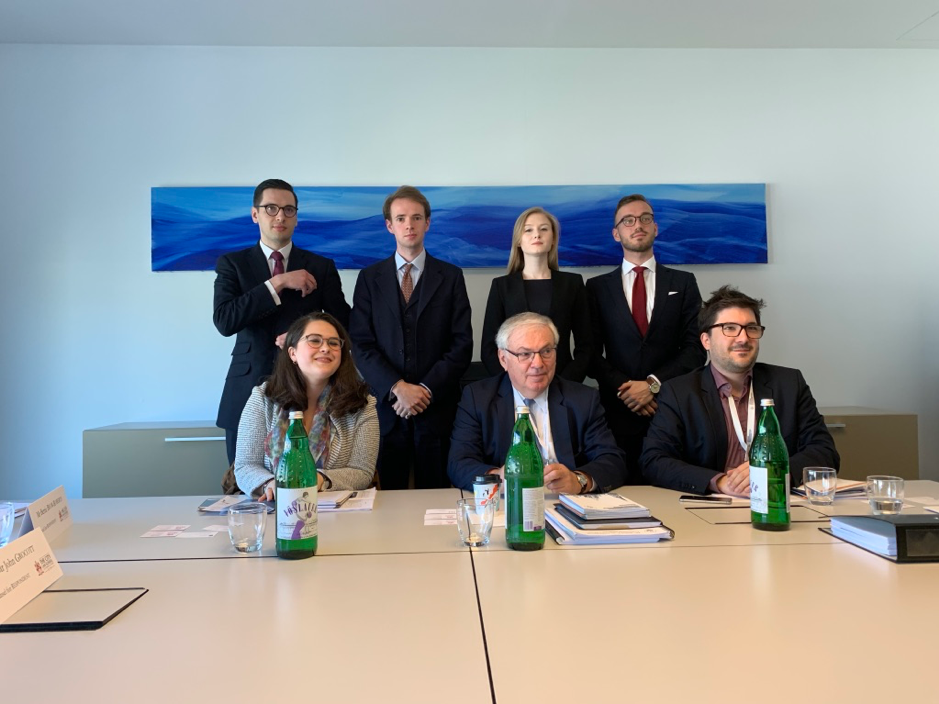More mooting adventures in Vienna…Don’t miss the Vis!
Five City Law School students headed off to Vienna in April; mooting in the Vis International Commercial Arbitration Moot. The students were Bertie Beor-Roberts, Alec Denniff, John Grocott, Stephen Hawes, and Hugh Rowan. Hugh shares the experience with us…
The Willem C Vis International Commercial Arbitration Moot is a competition designed to foster the study of international commercial law and arbitration, through its application of a problem involving the sale of goods between fictional states which are signatories to the UN Convention on Contracts for the International Sale of Goods and which have adopted a number of model laws, and parties which have agreed to resolve their disputes by arbitration using a particular set of rules which changes every year (this year it was the Hong Kong International Arbitration Centre Rules). It is the largest competition of its kind, and is one which is highly respected by commercial chambers and city firms (indeed you may find that the person interviewing may have been a competitor or an arbitrator, as happened to some of us this year).
On the 12 April the City Law School team landed in Vienna for what promised to be a fascinating week of mooting in the Grand Final. The week ahead comprised the culmination of over six months work, including the submission of two memoranda of over a hundred pages of arguments and references.

Part of the preparation involves taking part in a number of so-called ‘Pre-Moots’ in order to get a feel for the competition—we took part in one in London in early March, where we learnt much about the competition’s etiquette. It is also a great opportunity to find out what the best arguments are, which are freely plagiarised by all competitors. In this particular competition, hundred-page memoranda are scored separately from the short oral rounds, and therefore it is imperative to move away from them for the competition.
Notwithstanding taking part in the Fox-Williams Pre-Moot, nothing quite prepared us for the competition itself. On arriving at the opening ceremony, the first thing to strike us was the sheer scale of the competition: 372 teams were taking in Vienna (and more at the Vis Moot East in Hong Kong) from nearly a hundred countries all over the world, totalling thousands of competitors, or ‘mooties’ as we were to be known. With some particularly large teams, plus the various arbitrators, coaches, academic support (including junior and senior academic support!) and other staff, there was not enough room to accommodate us Vienna Konzerthaus for the opening ceremony.

The Vis Moot was entirely unlike any other mooting competition any of us had ever taken part in. It has its own unique sub-culture, with the opening ceremony even including a range of songs composed by a Pittsburgh Professor about the peculiarities of the competition. While the drinks reception that followed was a good opportunity for us to get to a feel for our competition—we invariably found every other team was supported by at least one coach and had taken part in more Pre-Moots than ourselves—we were quick to make our excuses, and head to our accommodation so that we could continue practising for our first round at 8.30am the following day.
Over the week we had four rounds to compete in, representing the Claimant and Respondent alternatively in a case involving a contract of sale for frozen horse semen in the context of a trade war. The problem itself had been set in early October, and due to its sheer length and complexity in each round, arbitrators honed in on different aspects of the problem, including the jurisdiction and powers of the tribunal, the admissibility of evidence in the tribunal, as well as the substantive merits of the claim.

The format of the rounds was somewhat unusual, with each team introducing themselves by exchanging business cards with the arbitrators and each other before deciding the speaking order and timing for each speaker (invariably 14 minutes per person, plus one for rebuttal, with Respondent starting on the procedural issue). The international nature of the competition added a further complexity as arbitrators from different legal backgrounds preferred different styles. For example, while one arbitrator may state that they wanted us to avoid focussing on the case law (e.g. preferring academic commentary), others wanted the mooties to give detailed facts.
We were sad not to make it into the knockout stages (only one UK team, Cambridge, did so), but on receiving our scores and feedback, we believe that with just a few small changes, we might have made it. We acquitted ourselves against significantly better-resourced teams, and moreover, the variety of the four rounds made them feel almost like four separate competitions—each of us learnt a great deal from the competition, both about ourselves, and about the scale and importance of international private law.

